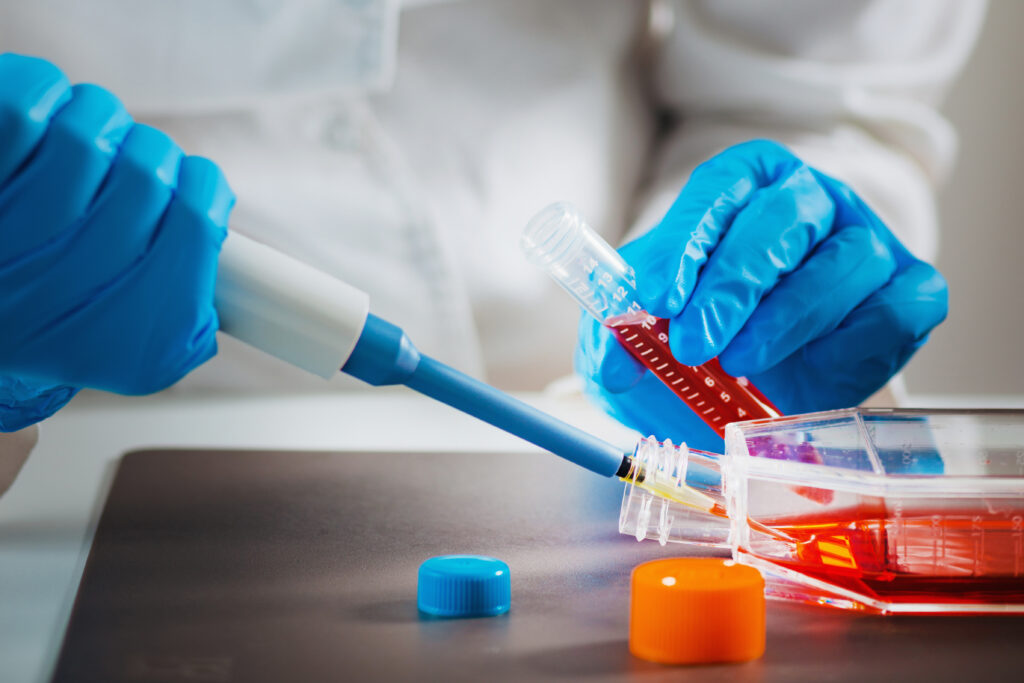Indaptus Therapeutics Inc. (NASDAQ:INDP) is a clinical-stage biotechnology company built around a bold scientific premise: that the next generation of cancer and infectious disease treatments requires activating the immune system in ways that today’s targeted therapies cannot achieve. Founded on decades of immunology and microbiology research, the company has developed its proprietary Decoy platform, a novel killed-bacterial technology designed to stimulate both innate and adaptive immune pathways simultaneously. This approach sets Indaptus apart from conventional immunotherapies, which typically focus on narrow molecular targets or single immune checkpoints. By engineering a therapeutic platform capable of triggering broad immunologic activation while maintaining tolerability, Indaptus aims to overcome tumor resistance, enhance checkpoint inhibitor responsiveness, and deliver deeper, more durable clinical benefits for patients who have exhausted available treatment options.
The company’s scientific foundation comes from pioneering work showing that specific bacterial components can create a coordinated immune cascade capable of priming the body against tumors and viral infections. Unlike live bacterial therapies that pose safety challenges, Indaptus’ killed-bacterial technology preserves immune-activating structure without the risk of systemic infection. This innovation is at the core of Decoy20, the company’s lead clinical candidate, which is now being evaluated in combination with tislelizumab, a PD-1 inhibitor, in solid tumor patients. The combination reflects Indaptus’ vision of using its platform as a universal immune amplifier, able to support and potentiate existing immuno-oncology therapies. Early clinical signals and safety data have reinforced the company’s belief that its approach can unlock new therapeutic possibilities in cancers that historically respond poorly to checkpoint inhibitors alone.
Indaptus’ history is defined by disciplined scientific execution and a willingness to challenge traditional drug-development assumptions. Rather than pursuing a narrowly defined immunotherapy mechanism, the company built an approach centered on orchestrating multiple immune pathways at once, replicating the body’s natural response to pathogenic challenges. This philosophy has shaped both its research strategy and its clinical direction, positioning the company to address unmet needs across a range of tumor types. Complementing its scientific foundation, Indaptus has assembled a leadership team with extensive experience in immuno-oncology, clinical trial design, regulatory strategy, and biotech financing. This combination of innovative science and operational discipline has guided the company through early clinical development while strengthening its financial position through equity financings, note conversions, and at-the-market capital programs.
Over the years, Indaptus has evolved from a technology-creation entity into a clinical-stage organization focused on validating the therapeutic impact of its platform. The company’s approach to trial progression, patient selection, and safety review reflects a deep commitment to data-driven decision-making, ensuring that each step in development is grounded in meaningful biological insights. This scientific rigor has earned attention from investors, strategic partners, and the broader oncology community, particularly as Indaptus continues to generate clinical data supporting the tolerability and potential activity of its combination strategies. As the company advances toward expanded enrollment and future trial phases, its long-term goal remains clear: to redefine how immune-based therapies can treat cancer and viral diseases by harnessing multi-pathway immune activation in a safe, controllable, and scalable therapeutic format.
A Transformative Approach to Cancer Immunotherapy Through Decoy20
Indaptus Therapeutics Inc. (NASDAQ:INDP) continues to build a strong scientific and clinical foundation centered on its proprietary Decoy20 platform, a first-in-class immunotherapy designed to activate both innate and adaptive immune pathways through a unique killed bacterial system. Unlike conventional immuno-oncology drugs that target narrow molecular pathways, Indaptus’ platform leverages broad immune activation with the goal of overcoming tumor resistance, enhancing checkpoint inhibitor response, and delivering durable anti-cancer activity. The company’s ongoing Phase 1 combination therapy trial using Decoy20 and the checkpoint inhibitor tislelizumab represents a major step forward in validating its approach in human subjects, providing a clinical signal that supports continued advancement in hard-to-treat solid tumors.

CHECK THIS OUT: Corcept (CORT) Skyrockets 1,534% in 10 Years and Immuneering (IMRX) Reports 86% 9-Month Survival in Pancreatic Cancer.
Early Clinical Outcomes Demonstrate Stable Disease and Combination Tolerability
The completion of the Safety Lead-In cohort in the Phase 1 combination trial marks an important milestone for Indaptus. Six evaluable participants were dosed with Decoy20 alongside tislelizumab, and the outcome of this early cohort provides a meaningful foundation for future progression. Three participants achieved stable disease at the first assessment, with two remaining on therapy, suggesting potential early activity despite small patient numbers and advanced disease settings. While not designed for efficacy, early signs of stable disease in such a heavily pretreated population offer promising biological validation. The Safety Review Committee determined that the Decoy20-tislelizumab regimen appears tolerable at the current dosing schedule, which is a critical component for future trial expansion. This tolerability is especially significant because activating broad immune pathways can introduce safety risks not seen in targeted therapies, making this early green light an important de-risking event for INDP stock.
A Strategic Pause Reflects Scientific Discipline Rather Than Weakness
Indaptus’ decision to pause further enrollment pending deeper efficacy evaluation reflects a disciplined, data-driven development strategy rather than a setback. Small companies often rush ahead for the sake of optics, but Indaptus is taking the opposite approach: ensuring that every participant’s follow-up data is thoroughly analyzed before moving to full cohort enrollment. This step underscores the company’s commitment to quality clinical evaluation and provides a better foundation for selecting optimal dosing, timing, or expansion strategies. For investors, this scientific rigor reduces the risk of failed later-stage development and demonstrates a leadership team focused on long-term value creation.
Strengthening the Balance Sheet to Support Clinical Progress
A bullish case for Indaptus is reinforced by the company’s proactive financial management. In September 2025, Indaptus successfully raised approximately $2.3 million through its at-the-market (ATM) facility, adding to its overall liquidity. This financing followed the July 2025 conversion of previously issued promissory notes totaling $5.7 million into equity, eliminating debt and strengthening the company’s capitalization. The additional capital provides runway into the first quarter of 2026 under current operating plans, giving Indaptus time to progress its clinical program, release more data, and continue evaluating next steps without immediate financing pressure. For a clinical-stage biotech with a novel immunotherapy platform, this financial stability is a meaningful advantage.
R&D Investment Accelerates as Phase 1 Trial Advances
Indaptus demonstrated increased investment in research and development during the third quarter of 2025, an encouraging signal of momentum and clinical commitment. R&D expenses for the quarter rose to $1.52 million, driven largely by increased spending on the ongoing Phase 1 combination study. Although costs rose year-over-year due to expanding trial activities, payroll and stock-based compensation decreased, highlighting efficient allocation of capital directly toward clinical development. For the nine-month period, R&D expenses reached $6.5 million, reflecting the company’s prioritization of advancing Decoy20’s clinical validation. This increased R&D focus positions Indaptus for meaningful data readouts, an important catalyst for INDP stock as investors seek evidence of biological activity that can power later-stage trials.
Operational Efficiency Increases Through Lower Administrative Costs
A bullish thesis is further supported by Indaptus’ successful cost management. General and administrative expenses declined significantly to $1.1 million for the quarter, down from $1.7 million in the same period last year. The sharp reduction was driven by lower stock-based compensation, payroll expenses, board fees, investor relations costs, and insurance expenses. The company has effectively shifted more resources toward mission-critical R&D while streamlining administrative overhead. Maintaining lean operations is essential for small-cap biotech companies, particularly those in early clinical stages, and Indaptus’ progress in this area reduces dilution risk and extends cash runway.
Financial Diversification Through Multiple Funding Channels
Another underappreciated strength of Indaptus is its demonstrated ability to successfully secure capital through multiple financing mechanisms, including ATM offerings, equity line purchase agreements, private placements of convertible notes, and common stock issuances. In the nine months ended September 30, 2025, the company generated approximately $11.7 million in financing inflows, compared to only $2.9 million in the same period last year. This significant increase highlights improved access to capital markets despite challenging biotech funding conditions. The ability to raise capital consistently is a strong indicator of institutional interest and investor confidence in the Decoy20 platform.
Decoy20’s Immunotherapy Mechanism Positions Indaptus for High-Value Partnerships
Indaptus’ Decoy20 platform is uniquely positioned within the immuno-oncology landscape because it activates multiple immune pathways in a single therapeutic approach. By engaging both innate and adaptive immune systems, Decoy20 has the potential to overcome resistance to checkpoint inhibitors and enhance the effectiveness of drugs like tislelizumab. This antigen-agnostic design offers broad therapeutic applicability across solid tumors and viral diseases, opening the door to future clinical collaborations, co-development agreements, or licensing opportunities with larger pharmas seeking next-generation immunotherapy assets. If Decoy20 continues to demonstrate tolerability and even modest activity in early trials, Indaptus could become a highly attractive acquisition target.
Early Clinical Signals Suggest Potential Synergy With Checkpoint Inhibitors
Checkpoint inhibitor combination therapies represent one of the largest and most lucrative sectors in oncology, and Indaptus’ ability to show tolerability alongside tislelizumab places it squarely in a high-value space. Many large pharmas are seeking ways to unlock greater efficacy in checkpoint inhibitors, and platforms that activate broad immune pathways are gaining heightened interest. If Decoy20 can enhance checkpoint activity, even in a subset of patients, the commercial potential is substantial. Investors should view these early stable-disease observations as meaningful signals that the Decoy20-tislelizumab combination may warrant deeper exploration.
A Compelling Asymmetric Risk-Reward Profile for INDP Stock
Taken together, Indaptus Therapeutics represents a classic high-potential, asymmetric biotech investment opportunity. The company is still in early clinical stages, but the emerging safety profile, initial indicators of stable disease, strengthened balance sheet, lean operational structure, and expanding financing options all support a bullish long-term outlook. The Decoy20 platform is fundamentally differentiated from conventional immunotherapies, offering a potentially transformative mechanism that could reshape treatment paradigms for cancer and viral diseases. As upcoming efficacy evaluations are released and Phase 1 data matures, INDP stock could see significant revaluation if biological activity continues to strengthen.
READ ALSO: Tiziana (TLSA) Surges 143% in 2025 and Immuneering (IMRX) Reports 86% 9-Month Survival in Pancreatic Cancer.








